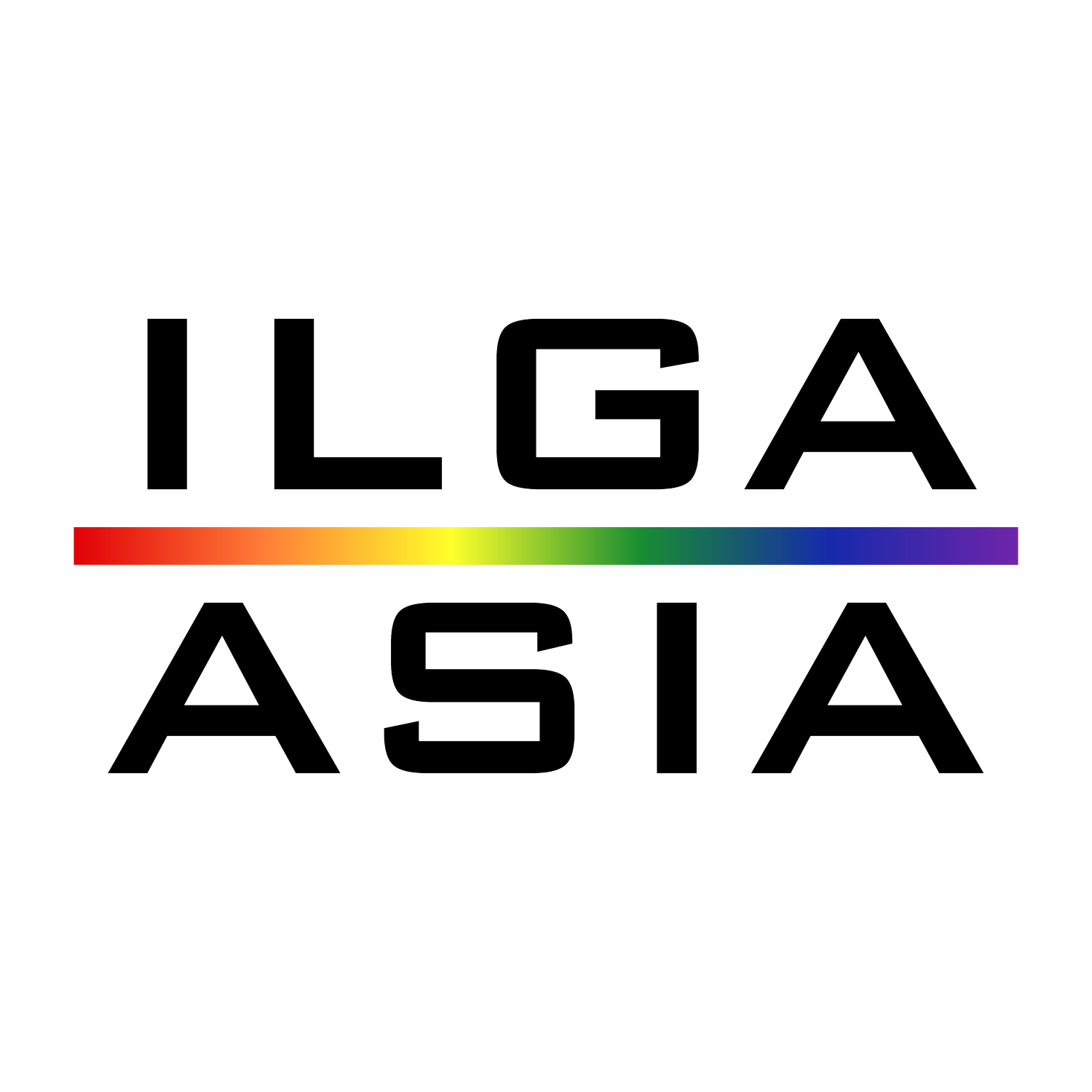Joint Statement: Abolish the death penalty and its arbitrary use to punish LGBTIQ persons
10 October 2022
ILGA Asia and ADPAN
On the 20th World Day Against the Death Penalty, ILGA Asia and the Anti-Death Penalty Asia Network (ADPAN) condemn the death penalty and its arbitrary use to punish LGBTIQ persons in Asia and call for its unconditional abolition.
As of today, nearly 70 countries around the world still criminalize consensual same-sex sexual conduct. Furthermore, 11 countries – Afghanistan, Brunei Darussalam, Iran, Mauritania, Nigeria, Pakistan, Qatar, Saudi Arabia, Somalia, the United Arab Emirates and Yemen – of which 8 are in Asia, retain the death penalty as a possible punishment for same-sex sexual conduct. The use of criminal sanctions, including capital punishment against lesbian, gay, bisexual, transgender, intersex and queer (LGBTIQ) individuals is rampant in Asia, especially against those from disadvantaged socio-economic backgrounds and/or belonging to racial, ethnic or religious minority groups. Moreover, limited access to legal aid and legal representation, as well as bias within the criminal justice system, has a detrimental impact on LGBTIQ people’s ability to be guaranteed a fair trial.
The death penalty has been imposed to punish LGBTIQ persons in Asia, with Iran being the most prolific in terms of carrying out executions. In early 2022, reports indicated that two gay men were executed on charges of ‘sodomy’ after they spent several years on the death row. Further, in August 2022, two women belonging to the LGBTIQ community - Zahra Sedighi-Hamadani (Sareh) and Elham Choubdar - were arrested by the Revolutionary Court of Urumieh, in the West Azerbaijan Province of Iran, and were sentenced to death under the charges of “corruption on earth” and “trafficking.” Experts have expressed their concern about the arrests being based on their involvement in LGBTIQ rights activism and non-normative gender expression. Reports have pointed out that the vague provision of ‘corruption on Earth’, while not containing any explicit reference to sexual orientation, gender identity and expression, or sex characteristics, has been used to arrest LGBTIQ individuals.
“We reiterate our position that consensual same-sex sexual conduct should be decriminalised, and the death penalty should be abolished under any circumstances. Further, we urge authorities in all the countries that continue to retain the death penalty to introduce a moratorium on its use, as a necessary first step towards the abolition of the death penalty. Lastly, we call on authorities to ensure that all necessary safeguards are in place in order to ensure access to legal representation, fair trials and judicial transparency for those currently facing the death penalty in connection with their real or perceived sexual orientation and/or gender identity,” said Ajita Banerjie, Research and Policy Officer at ILGA Asia.
In 2017, the UN Human Rights Council passed a resolution condemning the imposition of the death penalty for consensual same-sex sexual conduct. The resolution urged member States that continue to retain the death penalty to ensure that it is not “applied arbitrarily or in a discriminatory manner.” In 2016, the Report of the Special Rapporteur on took note took note of the unique experiences of LGBTI persons and noted that victims of violence “face significant hurdles in accessing justice and reparations, including absence of or shortcomings in domestic legal frameworks to hold perpetrators accountable, and practical obstacles such as the significant expense involved in accessing court.” In its General Recommendation on Access to Justice in 2015, the CEDAW Committee noted that “discrimination against women is compounded by intersecting factors”, one of which was “being lesbian, bisexual, transgender women or intersex persons. These intersecting factors make it more difficult for women from those groups to gain access to justice.”
The use of the death penalty is not consistent with the right to life and the right to live free from torture or cruel, inhuman, or degrading treatment or punishment. All countries that continue to retain the death penalty for consensual same-sex sexual conduct must abolish the death penalty and introduce a moratorium on its use, as a necessary first step towards abolition. Further, authorities must ensure that all necessary safeguards are in place to ensure access to legal representation, fair trials and judicial transparency for those currently facing the death penalty in connection with their real or perceived sexual orientation and/or gender identity. Lastly, laws criminalizing consensual same-sex sexual conduct must be repealed, including vague and broadly defined provisions that can be misused against individuals based on their real or purported SOGIESC.
“With over 90% of the world’s executions taking place in Asia, the need to limit the application of the death penalty in this region is crucial. In 2022, there is no place for the death penalty in any circumstances and certainly not for the continued persecution of individuals based on their sexual orientation and/or gender identity. On the 20th World Day Against the Death Penalty, we call on countries that identify as death penalty abolitionists and as allies to the LGBTIQ communities, to work together to oppose and challenge executions of any persons based on their sexual orientation and/or gender identity and provide refuge for those requiring it, said Sara Kowal, Executive Committee member at ADPAN.
Recommendations to the international community :
Abolish the death penalty; establish a moratorium on all executions and commute all death sentences;
Remove the mandatory death penalty for all crimes, including for offences relating to same-sex sexual acts and other vague provisions that criminalise persons of diverse gender expressions;
Bring national legislations in line with international law and standards by removing legal provisions that allow for the use of the death penalty for offences that do not meet the threshold of the “most serious crimes”;
Repeal all discriminatory laws that punish same-sex sexual relationships and non-normative gender expression;
Ensure that all persons facing the death penalty – especially including those from disadvantaged or marginalised backgrounds – are provided access to effective legal assistance;
Ensure judicial transparency by publishing full and detailed information, disaggregated by gender identity and sexual orientation, among other factors.
For more information, email:
Sara Kowal, Executive Committee, ADPAN




